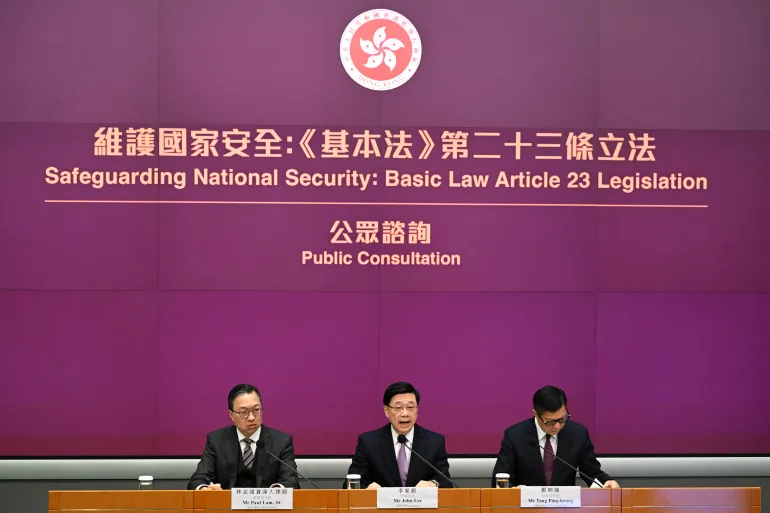In response to Chief Executive John Lee’s call for swift action, the Hong Kong government has unveiled a comprehensive draft of a new national security law for the territory. The proposed legislation, known as the Safeguarding National Security Bill, is currently under scrutiny in the Legislative Council.
Comprising 212 pages, the draft bill outlines stringent measures targeting offenses such as treason, espionage, external interference, state secrets, and sedition. Individuals convicted of treason could face life imprisonment, while those found guilty of espionage could be sentenced to up to 20 years behind bars.
Furthermore, the proposed law seeks to heighten penalties for sedition, including incitement against the Chinese Communist Party and the socialist system, extending sentences to seven years. Notably, police powers would also be expanded, allowing for the detention of suspects for two weeks before formal charges are laid, a significant increase from the current 48-hour limit.
Chief Executive John Lee has emphasized the urgency of passing the bill swiftly, asserting that it is essential for safeguarding national security and enabling the territory to progress. He urged expedited legislative action to ensure Hong Kong’s economic development and long-term stability.
The draft legislation follows a month-long public consultation process, during which the government received over 13,000 submissions, with an overwhelming majority expressing support for the proposed measures. Despite concerns raised by human rights groups and civil society, the bill is expected to encounter minimal opposition in the Legislative Council, where pro-Beijing candidates dominate following electoral reforms.
Beijing’s imposition of a national security law in 2020, bypassing local legislature, has led to a crackdown on dissent and erosion of freedoms in Hong Kong. Critics argue that these measures have severely undermined the territory’s autonomy and violated promises made by Beijing regarding the preservation of Hong Kong’s liberties after its return to Chinese sovereignty in 1997.
The current political climate in Hong Kong has seen numerous arrests, closures of media outlets, and exile of pro-democracy figures. The ongoing trial of media tycoon Jimmy Lai, whose Apple Daily tabloid was shuttered following a high-profile police raid, underscores the far-reaching implications of the national security law on Hong Kong’s democratic principles and freedom of expression.



















+ There are no comments
Add yours